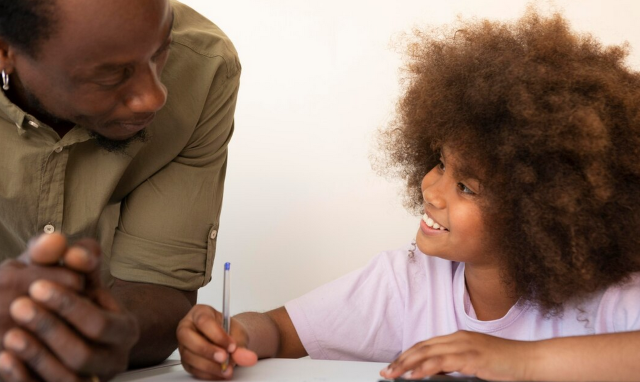PARENTS, DO THESE THINGS TO RAISE CURIOUS LEARNERS

Want to raise a curious learner? According to the experts, parents who do these things will raise curious learners who thrive on this life-long journey.

According to recent research from the National Library of Medicine, children who are engaged, no matter the age group, in school tend to be curious and self-motivated to learn. Consequently, these students perform better in school, developing skills and traits that will help them to grow into successful adults.
However, this particular student performance is under threat as student engagement has declined in recent years. Per a 2024 survey by The Harris Poll for Discovery Education, COVID-19 pandemic disruptions are still adversely affecting students around the world and “nearly half of U.S. teachers believe their students are less engaged at school now than in 2019.”

So, just how can parents educators reverse this growing phenomenon and instill the curiosity of learning in their children? On the authority of author and parenting researcher Jenny Anderson, in an interview with CNBC, here are six ways that parents can intervene to help set their children up for long-term educational success.
Let them make decisions and experience consequences
Allow your children to make their own decisions even if they miss the mark and have to face and navigate unfavorable consequences for their actions.
“[We’re] there to support them as they make a bunch of extremely bad decisions [to learn] to make better ones,” Anderson told the outlet. “So hopefully, when they leave [home], they’re capable of making these decisions better.”
Avoid comments like “I’m not a math person”
Do not have a negative mind-set in front of your children. Saying things like, “I’m not a math person,” etc. puts boundaries on your capabilities, which we all know that with the right coaching, there is nothing that we cannot grow to do. Don’t limit yourself or your children.
“This stuff is contagious,” she said, adding that parents should encourage their kids to keep trying if they don’t succeed at something right away. “Math is super important in the world, and [if] you don’t understand, let’s get you the help … Everyone can be developed, brains are malleable.”

Talk about what they’re learning at school
Showing a genuine interest in what is going on inside of the classroom will allow children to open up about what they are interested in or not educationally. Also, this will definitely foster parent/child engagement and communication.
“On all these learning portals, you can find out what they did [at school] — not to monitor them, not to surveil them, but to be interested in their lives,” Anderson said.
Ask about the “good class,” first, not the “bad class”
Remember, when you develop a conversational groove about school with your child, make sure to talk about the “good class” first off and then broach the subject of the “bad class”.
“Talk about something good that happened in their day [and] get that tank filled up a little bit,” Anderson said. Then, you can gently broach the more difficult subject: “Is everything going OK in biology? Is there anything you want to talk about, anything you think you need?”
Go a step further to help make that “bad class” a bit better. “Connect the dots” for your child by relating something they are interested in to the subject matter that is giving them trouble. In the end, the “bad class” may just end up being a part of the “good ones”.
And lastly, share your own mistakes, and how you learned from them
Be transparent and honest with your kids about your own mistakes and how you overcame them and learned a lesson. By doing this, children know that you are not perfect and that they aren’t expected to be so either!


